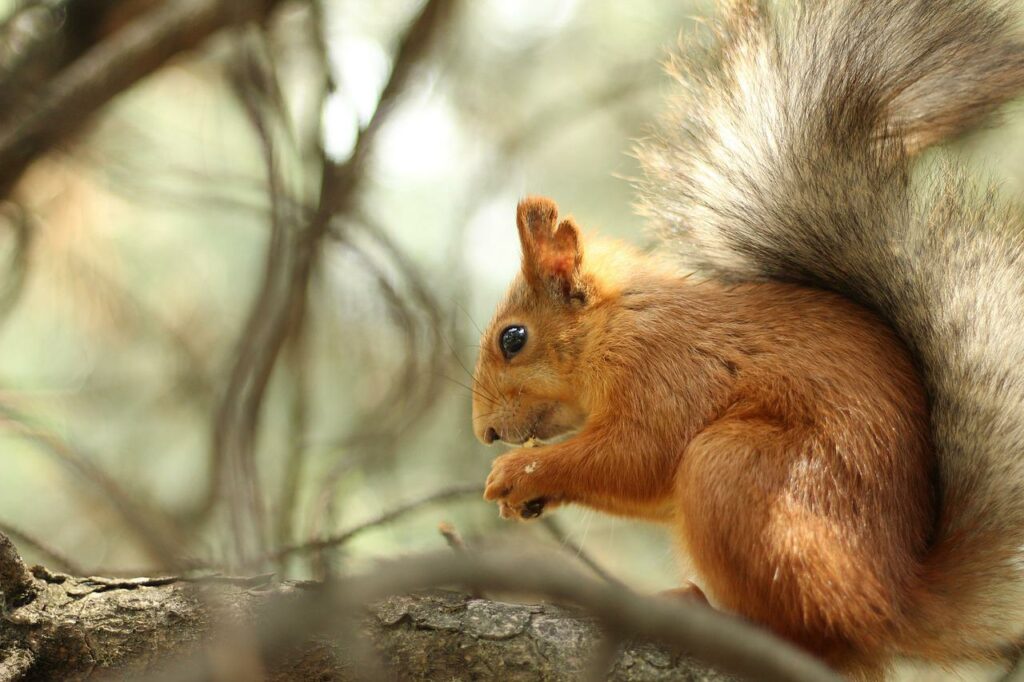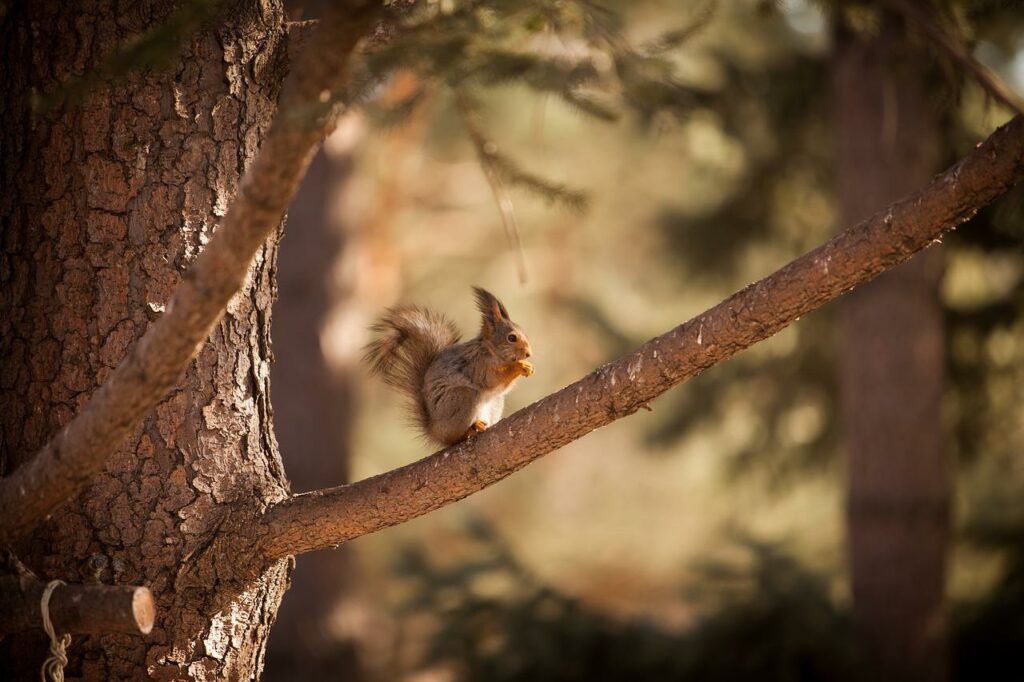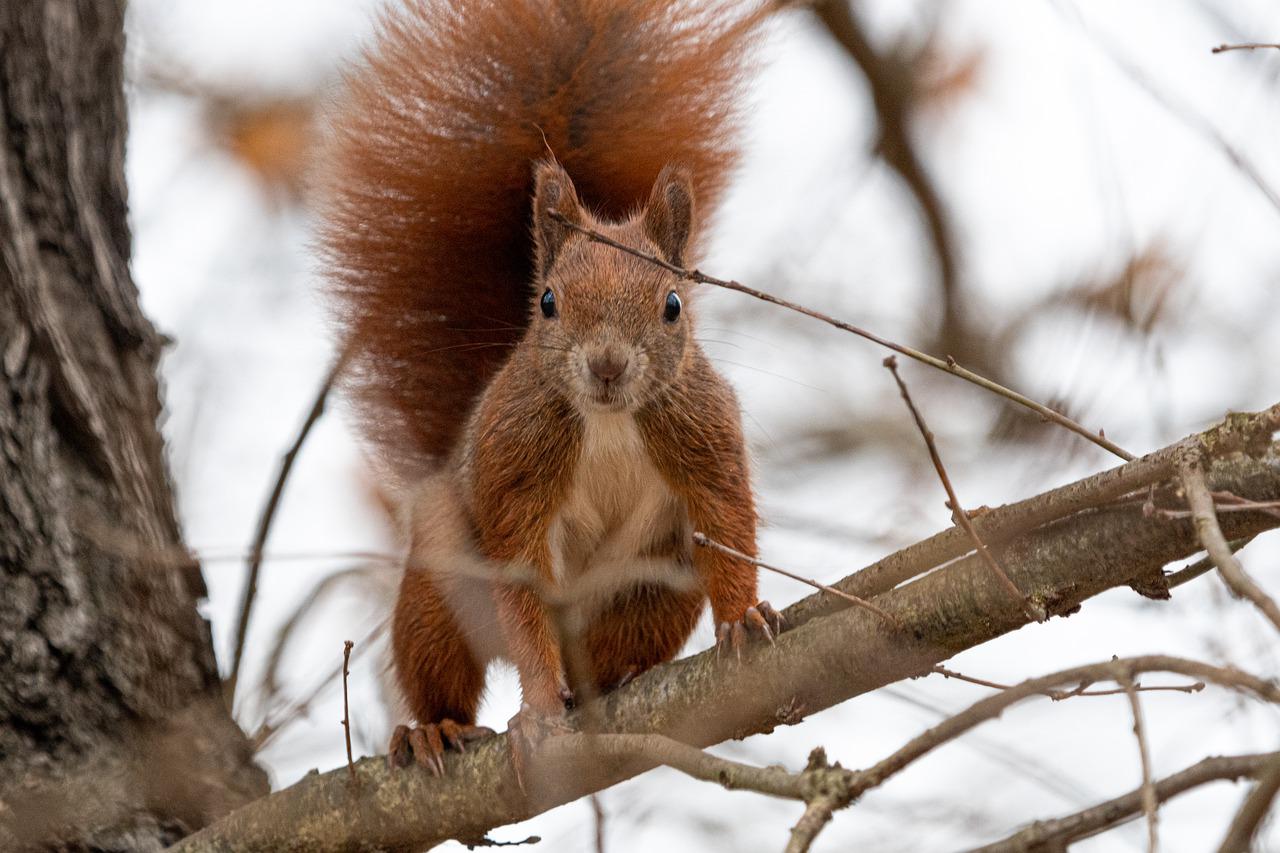Even though squirrels are considered rodents, many people don’t really find them that dangerous compared to, say, rats and mice. Squirrels are also beneficial to the ecosystem, particularly because of their habit of taking and burying seeds. They are basically nature’s gardeners. But despite their cuteness, there are potential dangers associated with squirrels.
So, are squirrels dangerous?
Squirrels are potentially dangerous as they can spread diseases…
Squirrels can potentially spread diseases. The only positive news here is that, according to the Center for Disease Control and Prevention (CDC), squirrels are almost never found to be infected with rabies and have not been known to transmit rabies to humans.
But the fact still remains that squirrels are rodents, and they may spread diseases that other rodents spread. Here are the common diseases spread by squirrels and rodents in general:
Leptospirosis
Leptospirosis comes from the bacteria from an infected animal, in this case, the squirrel. Squirrels can spread the bacteria in their environment through their urine. A person who gets in contact with the infected squirrel’s urine or contaminated food, soil, or water can get leptospirosis.
The bacteria can get inside your body through your mucous membranes like eyes or through your skin, especially if you have wounds. Symptoms include diarrhea, headaches, high fever, and vomiting.
Lyme Disease
Squirrels can carry parasites as well, like fleas. Cat and dog fleas are different problems altogether. But the ones you should be truly concerned about are the black-legged ticks that can give you Lyme disease. It doesn’t help that it’s the most common vector-borne disease in the United States.
Chills, headaches, muscle and joint aches, and rashes are the symptoms you should look out for. Luckily, most cases of Lyme disease can be treated within a few weeks with antibiotics.
Salmonellosis
Salmonellosis is an infection you can get from the Salmonella bacteria. And you can get these bacteria from the feces of animals, including squirrels. However, you can also get it from other common home pests, like flies.
You can get salmonellosis by eating food or drinking water that has been contaminated by squirrel feces. But be careful in cleaning up squirrel feces as well. The particles flying around as you brush or wipe may find their way inside your nose or mouth.
Tularemia
If you see a dead squirrel outside your home, be very careful in handling it. It may be infected with tularemia, a disease rodents are vulnerable to. Unfortunately, humans can get the disease as well by getting in contact with animals that have the disease.
It’s also kind of difficult to diagnose, so you may need blood tests to fully confirm the diagnosis. Thankfully, most patients with tularemia completely recover after about 10 to 21 days.

Are squirrels dangerous if they attack you?
The dangers of squirrels are not always as subtle as disease-causing microorganisms. Sometimes, they are as obvious as squirrel attacks — and the wounds you can get from them. There are no extensive statistics regarding squirrel attacks, and this is because of the fact that victims don’t even feel the need to report them. The wounds may be mild and negligible.
After all, squirrels are generally timid creatures. They rarely attack, and they will actually try to run away when they see some kind of danger. However, squirrel attacks are still not unheard of. Squirrels fight back when they feel threatened.
Here are some tips to avoid squirrel attacks:
- Don’t try to touch squirrels, no matter how cute and harmless you think they are.
- Don’t attempt to handle baby squirrels, especially if their mother is around.
- Make sure to teach children not to touch wild animals outside your home.
Squirrels can destroy your home’s exterior
They may dig holes and destroy plants
As you have probably seen in cartoons and movies, squirrels like picking food and burying them for later, especially in the winter when food is more scarce. Unfortunately, your home’s exterior can contain these food items and it can also serve as a place where they bury them. You may end up having a lot of holes in your property. And in worst cases, you may also end up with dead plants that have been uprooted because of squirrel activity.
They may eat your garden away
If you have a garden, you have a lot of garden pests to deal with, like whiteflies that suck the life out of your plants. Squirrels can also be considered garden pests because they eat fruits, vegetables, seeds, nuts, and berries. And sometimes, they even dig up and eat tulip bulbs.
They may damage trees and destroy wooden furniture
Squirrels can also chew on shrubs and trees, causing severe damage. If you have wooden furniture outside your home, like chairs and tables — tough luck. They like to chew on those as well. Severely damaged greeneries can die, not to mention that they also look unsightly. Chewed furniture is also a health risk because it can collapse.

Squirrels can get inside your home and cause damage
They are more likely to spread diseases
Squirrels are just like other pests — they want resources and shelter. The inside of your home is the perfect spot because it can provide both. And here’s the worse part — the closer you are to squirrels, the more vulnerable you become to the possible diseases they can spread.
If you have squirrels inside your home, you are more likely to get in contact with squirrel feces and urine which can give you diseases like leptospirosis and salmonellosis. You are also more likely to get attacked.
They can cause structural damage
Squirrels are small creatures. They can squeeze through the tiniest of holes. Unfortunately for those holes, they are bound to get bigger and bigger as squirrels chew on them. Squirrels can live in attics, basements, and everything in between, including the insides of your walls.
Your indoor furniture, especially the wooden ones, will also be at risk of damage.
They can put you at risk of house fires
Squirrels don’t just gnaw on wood. They also gnaw on electrical wires. As small creatures, they are sure to get into the small spaces where these wires are located inside your home. If you are suffering from a squirrel infestation, you are at risk of electrical failure and house fires.

